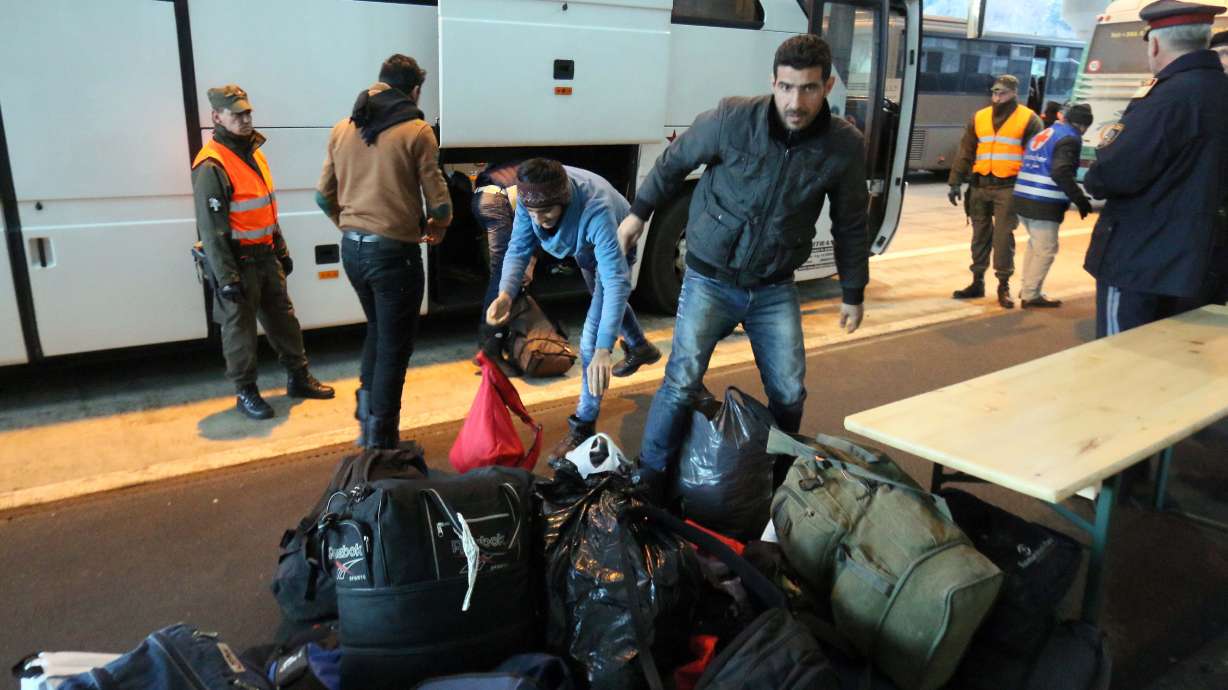Estimated read time: 2-3 minutes
This archived news story is available only for your personal, non-commercial use. Information in the story may be outdated or superseded by additional information. Reading or replaying the story in its archived form does not constitute a republication of the story.
BRUSSELS (AP) — The European Union's top migration official on Thursday said efforts to manage the refugee emergency are failing as more countries tighten border security, a trend he says could unravel unity in the bloc.
"The situation is getting worse," Migration Commissioner Dimitris Avramopoulos told EU lawmakers in Brussels, noting that up to 4,000 people were arriving daily in Greece over Christmas and New Year fleeing conflict or poverty.
More than a million people landed on Europe's shores last year, many from conflict zones including Syria, Iraq and Afghanistan. Most traveled through Turkey and disembarked on Greek islands just a short — but dangerous — hop across the Aegean Sea.
Overwhelmed authorities in Greece have been unable, and in some cases unwilling, to register or lodge the migrants and hundreds of thousands of people have headed north hoping to be accepted in countries like Germany or Sweden.
Avramopoulos said that "more and more member states are reintroducing border controls" in response, including Germany, Sweden, Denmark and Austria.
European nations promised in October 2013 to address the challenge after hundreds of people drowned off the Italian island of Lampedusa. They renewed those pledges last year as the dangerous Mediterranean Sea crossings increased and the death toll mounted.
But the flight of millions from the conflict in Syria has exposed severe weaknesses in Europe's border security and migration policies and opened up a political rift with several eastern EU member nations.
In an effort to help stem the flow, the EU launched a scheme in September to share 160,000 refugees arriving in Greece and Italy among member states but fewer than 300 have actually found homes in other countries. Plans to directly take refugees from outside the EU, in countries like Turkey, are also moving slowly.
"These schemes have not delivered the expected results," Avramopoulos said, as the system for processing people in Greece and Italy struggles to get off the ground. So far their EU partners have made only a few thousand places available for any likely refugees.
Not all people are seeking international protection. Significant numbers hope mainly to secure jobs, and they are almost certain to see their attempts to obtain residency rejected.
Yet EU nations are failing to send back those who do not qualify. Of the hundreds of thousands of people who have arrived since September, fewer than 900 have been returned home.
"Europe will provide protection for those who need it, but those who have no right to be here have to be returned," Avramopoulos said.
He said that Europe's passport-free travel zone, known as the Schengen area, is under threat and that the EU's executive Commission would come forward in March with measures to strengthen the bloc's borders to the outside world.
"If Schengen collapses," Avramopoulos warned, "this will be the beginning of the end of the European project."
Copyright © The Associated Press. All rights reserved. This material may not be published, broadcast, rewritten or redistributed.









